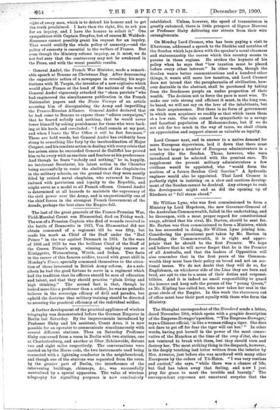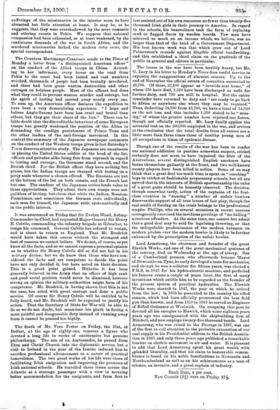The Shanghai correspondent of the Standard sends a letter, dated
November 19th, which opens with a graphic description of the Empress-Dowager's position. "The Empress-Dowager,' says a Chinese official, is like a woman riding a tiger. She does not dare to get off for fear the tiger will eat her.' " In other words, having put herself in the power of the most conser- vative of the Manchus at the time of the coup d'etat, she has not ventured to break with them, lest they should tarn and destroy her. The most striking thing in the despatch, however, is the deeply touching last letter written from the interior by Mrs. Atwater, just before she was murdered with many other Europeans by the orders of Yil-Hsien. "I was very restless and excited," she says, "while there was a chance of life, but God has taken away that feeling, and n ow I just pray for grace to meet the terrible end bravely." The correspondent expresses not unnatural surprise that the
sufferings of the missionaries in the interior seem to have attracted but little attention at borne. It may be, as he suggests, that they were overshadowed by the more romantic and stirring events in Pekin. We suppose that national compassion had been exhausted, or at least weakened, by the continuous demands of the war in South Africa, and the murdered missionaries lacked the modern vates sacer, the special correspondent.



































 Previous page
Previous page